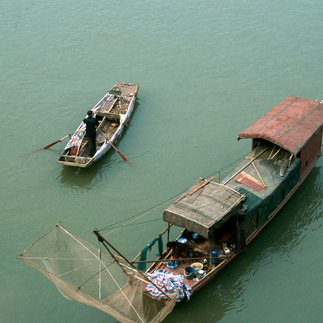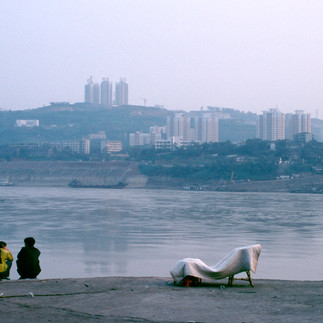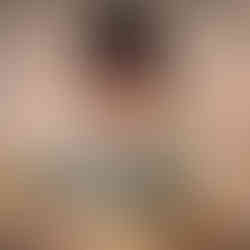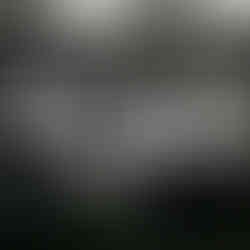- Jul 31, 2024
Charter Weeks, who died on July 10 at the age of 81, was an early and regular contributor to Hole In The Head Review. His photographs, published in five issues and in the Ukraine Anthology, were the work of a curious mind, a big heart, and a good eye. We'll miss him.
Here's a look back at his contributions.
Volume 1 number 2
volume 3 number 1
volume 3 number 2

Ukraine Anthology
volume 4 number 2
volume 5 number 1

Artist's Statement:
I suppose everyone has a motivating element that gets them headed off in a particular direction. In my case, as an art student in the 1960’s, the recognition of photography as a legitimate art form had finally taken hold and was being taught in most universities and art schools. I had the good fortune to study with Harry Callhan at RISD and so got a fundamental grounding in both the technical and structural elements of image making.
The 60’s were a particularly fertile period for photography, with the 1955 publication of Steichen’s “The Family of Man” raising public awareness of recording the human story around the world, MoMA’s exhibition of Robert Frank’s The Americans, and even more importantly the visual record of turmoil in Vietnam and the freedom struggles in America’s South. Bruce Davidson, who had been retained by SNNC to document the movement, had much of his extraordinary work appear in the news and in LOOK magazine along with other brave photographers at the time . There was also the reissue of “Let us Now Praise Famous Men” by Walker Evans and James Agee showing the endemic poverty of Appalachia.
Simultaneously the traditionalists like Weston and Adams were inspiring a new generation of large-format photographers and the Land Corporation’s development of 8” X 10” Polaroid backs for these cameras raised naturalist photography to a new prominence.
And finally the movies (or moving pictures) had enormous cultural influence from documentary footage of Bull Conner unleashing dogs on peaceful marchers in Montgomery Alabama to the influx of Goddard, Truffaut, Richardson, Bergman and other European directors renewing the cinema’s role as a tableau for philosophical discourse.
This is the context in which I began my journey as a photographer (and at one point, a filmmaker). Those influences have shaped virtually every element of my image making since and have sustained my desire to say something useful with my pictures. I have had the good fortune to photograph in many parts of the world , but this selection of images records some of my view of America over the past 45 years. America is a place of such diversity that it is endlessly fascinating visually.
One of the important aspects of photography is its ability to keep yesterday safe for tomorrow. I would like to believe that my work will be a window into my generational experience for someone in the future as surely as those who came before me have made real the world they inhabited.













































